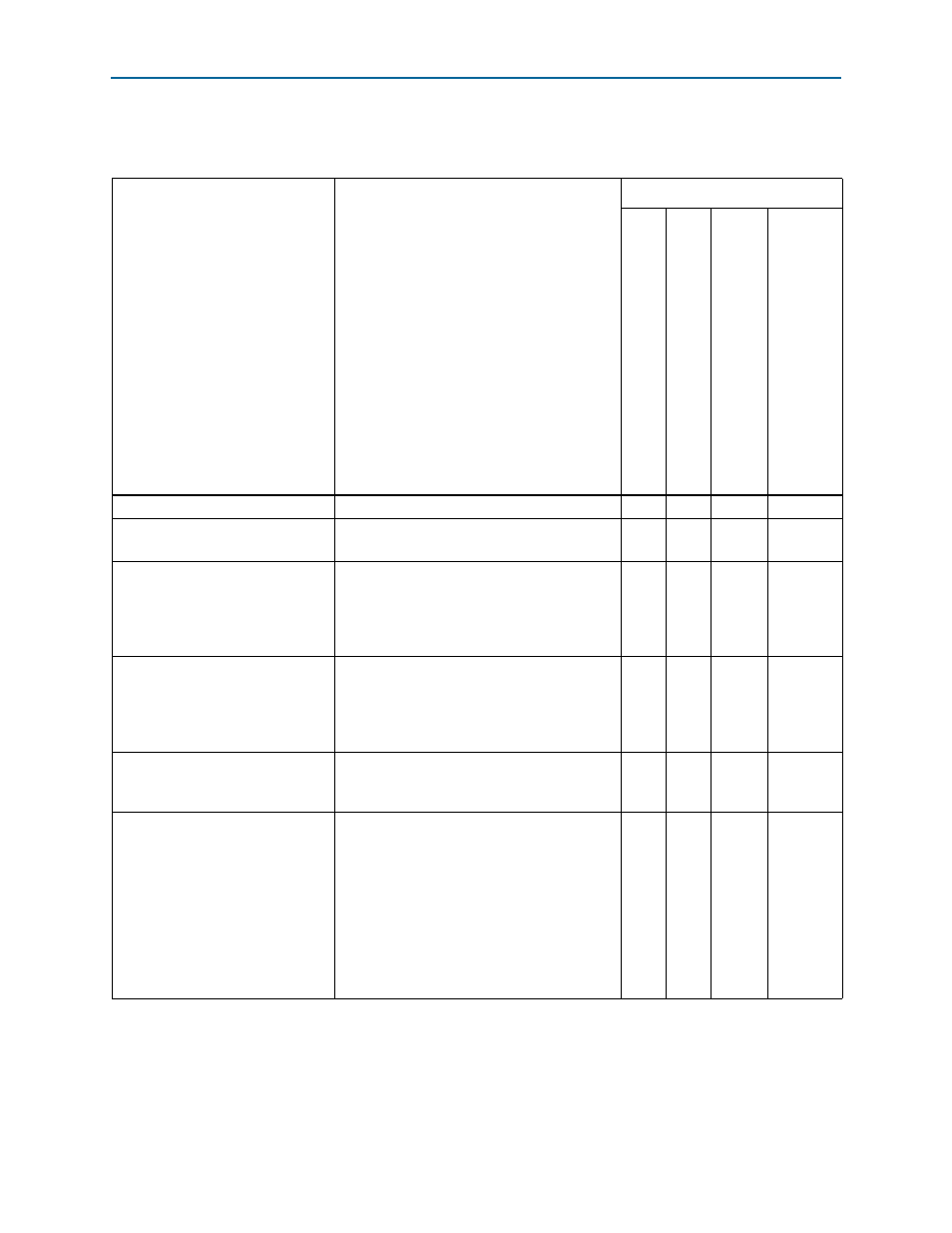Altera DQ (ALTDQ) User Manual
Page 4

Page 4
Getting Started
DQ (ALTDQ) and DQS (ALTDQS) Megafunctions
November 2010
Altera Corporation
Page 3 of the ALTDQS parameter editor is the General page.
describes options available on page 3 of the ALTDQS megafunction.
Table 2. General Settings (Part 1 of 3)
Option
Description
Supported Devices
Cy
clone
II
Cyclone
III, Cyclone
IV
GX
Str
a
tix, St
ratix GX,
Stra
tix
II,
Stratix
II
GX, Arria
GX, HardCopy
II
Currently selected device family
Displays the currently selected device family.
Yes
Yes
Yes
Yes
What is the frequency of the DQS
input(s) ?
This is the input DQS frequency.
Yes
Yes
No
No
How many DQS pins would you
like?
Specifies the number of DQS pins that are
implemented or the number of DQS/DQSn pin
pairs generated.The maximum number of pins
possible depends on the chosen device and the
'dqsn_padio' port option.
Yes
Yes
Yes
Yes
Create an output enable for the
DQS pins
This enables the DQS output path. Turn on this
option to create an output enable for the DQS
pins. If you select the no output enable port is
used option, the dqs_padio signal drives out
permanently.
Yes
Yes
Yes
Yes
Register the output enable
This enables the DQS OE path. Turn on this
option to register the output enable port with
the outclk signal.
Yes
Yes
Yes
Yes
What will control the DQS/nDQS
delay chains?
■
DLL feedback loop counter controls the
DQS/nDQS delay chains
This is the default option. DLL inserts a delay
equivalent to requested phase-shift at input
clock frequency. Input clock frequency and
phase-shift are set on page 4.
■
No DLL is used
No DLL and no delay is added between the
DQS/nDQS and the dqinclk port.
Yes
Yes
Yes.
Always
uses
DLL.
Yes. Have
an option
to choose
either DLL
or no DLL.
